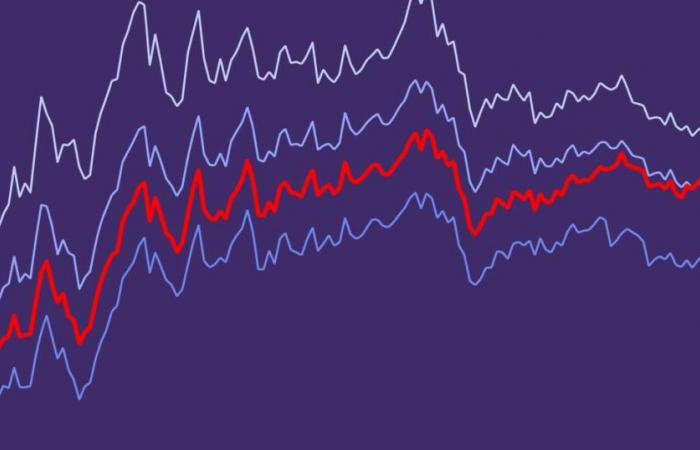
Bad news for the government and the country's public finances: the cost of borrowing French debt, which today amounts to more than 3,230 billion euros, has increased significantly since December. In just over 30 days, the 10-year rate rose from 2.88 to 3.45%, an increase of 0.57 points. Over the same period, the other major European economies (Germany, Italy, Spain) saw their rates evolve at approximately the same pace, slightly faster for Italy, slightly slower for Germany. This general increase in the cost of debt took place even as the European Central Bank (ECB) lowered its key rates slightly, by a quarter of a point.
Several factors can explain this development. First of all, the political uncertainties coming from the United States since the election of Donald Trump and the risks of perverse effects of his future protectionist economic measures on trade with Europe. Then and above all, the strong increase by the ECB in its rate of reduction of public debt securities in its possession. Some of these securities have been on the ECB's balance sheet since 2014. That year, it embarked on massive purchases of European debt to ward off the threats of European deflation and the risks of a breakup of the zone. euro. This process is called quantitative easing (or “quantitative easing”). The program was massively relaunched in 2020, during the first wave of Covid, to help European countries in their policy whatever the cost.
In August 2022, any net purchase of debt by the ECB is stopped, but the institution systematically reinvests in maturing debt securities to stabilize the volume in its possession. From February 2023, it moves to the next stage: it no longer reinvests in all matured securities. Several measures were taken to increase the rate of discarding by the ECB of securities in its possession, until last December, when nothing was reinvested. Result: each security that matures is reimbursed by the issuing State, which can no longer count on the ECB to buy a new one. States must then increase the remuneration and the interest rate to attract new subscribers. Hence upward pressure on debt interest rates.
This rate increase can also be explained, in the case of France, by the dissolution effect and the political instability that it has caused: since June 9, the French 10-year rate has widened the gap with the German rate and increased by 0.40 points compared to the latter. And the Spanish rate has fallen below the French rate. As a result, on Thursday January 9, Agence France Trésor raised 13 billion euros in the long term on the markets, at rates between 3.40% for 10-year securities and 3.93% for 30-year securities. years.
France
Basketball





